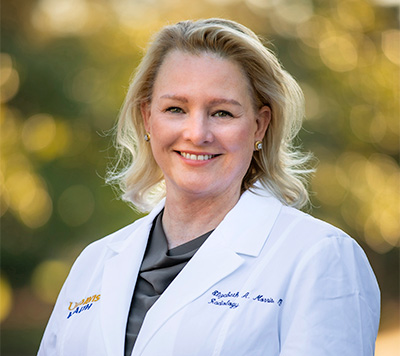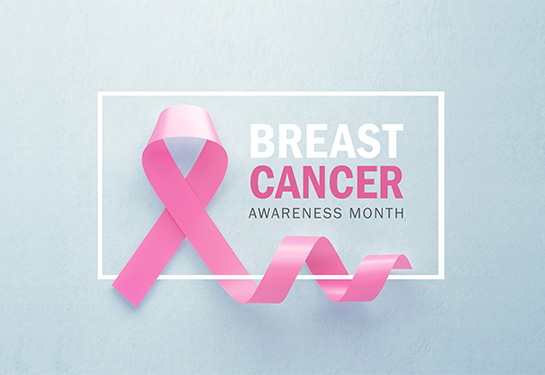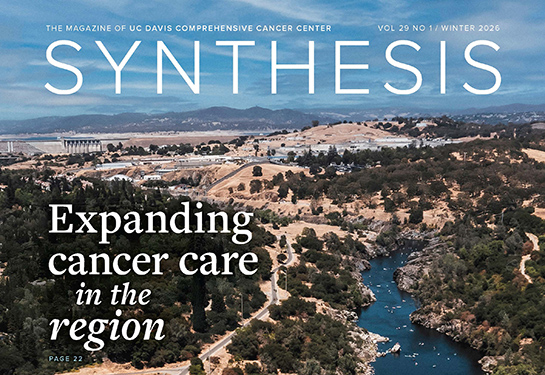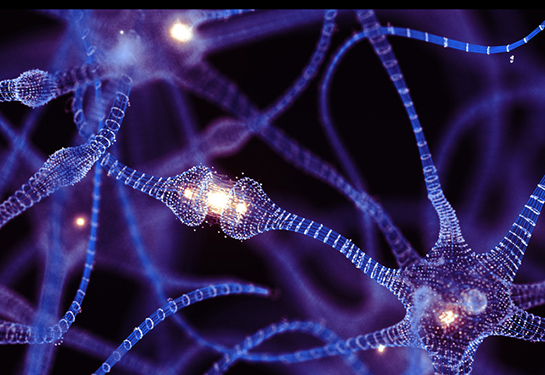Why women should start getting mammograms at age 40
October is Breast Cancer Awareness Month. A radiologist and breast cancer survivor explains new screening guidelines
The United States Preventive Services Task Force (USPSTF) issued new draft guidelines in 2023 recommending women start breast cancer screening at a younger age. Leading breast cancer screening expert Elizabeth Morris, chair of the UC Davis Department of Radiology and a breast cancer survivor, answers questions that are on the minds of many women.

What do the new draft guidelines recommend?
- Start breast cancer mammograms at age 40 instead of the previously recommended age of 50.
- Schedule mammograms in alternating years between the ages of 40 and 74.
Learn more about breast cancer care at UC Davis Health
Why were the guidelines revised?
More women are being diagnosed with breast cancer while in their 40s. Also, cancer disparities need to be considered. For instance, research has shown that Black women are 40% more likely than white women to die from breast cancer. They are also more likely to be diagnosed in their 40s and with more aggressive breast cancer.
Learn more about why it’s so important to get regular breast cancer screenings
Should women get a mammogram every year or every other year?
The USPSTF continues to encourage women be screened every other year. However, I strongly recommend that women get a mammogram every year. It has been shown that if you are screened annually, breast cancer will be caught at an earlier stage.
Mobile mammography clinic increases access to lifesaving breast cancer screening
Why do the USPSTF guidelines matter?
USPSTF is a volunteer panel of experts in evidence-based medicine that issues reports that help make health care decisions. Its guidelines also can influence insurance coverage and other aspects of public health.
What about women with dense breasts?
These guidelines apply to average women at average risk of breast cancer. Women with dense breasts should also consider the benefits of breast ultrasound or getting an MRI. I’ve long advocated for women with dense breasts to get these more accurate screenings.
Is it possible to be screened too often?
Mammograms do pose some potential risks, such as radiation. Additionally, women may be given false positive results that lead to biopsies or surgery, which can put them at risk of harm as well as cause stress. The goal is to balance the benefits against overtreatment. Annual screening is recommended.
How can I schedule a mammogram at UC Davis Health?
Talk to your doctor about reducing your breast cancer risk factors, and whether you are at an average or increased risk for breast cancer. To schedule a screening mammogram, contact the Breast Imaging Division at 916-734-0655 or make an appointment on MyUCDavisHealth.
The UC Davis Health Breast Imaging Division is an American College of Radiology accredited Breast Imaging Center of Excellence. It offers a full range of breast imaging services with state-of-the-art equipment. A variety of biopsy techniques are available including digital mammography, tomosynthesis, ultrasound and MRI. Each of our breast imaging exams is read by specialists.
Learn more about access to free mammograms during Breast Cancer Awareness Month
This blog was medically reviewed by Elizabeth Morris, radiologist and chair of the Department of Radiology.
UC Davis Comprehensive Cancer Center
UC Davis Comprehensive Cancer Center is the only National Cancer Institute-designated center serving the Central Valley and inland Northern California, a region of more than 6 million people. Its specialists provide compassionate, comprehensive care for more than 100,000 adults and children every year and access to more than 200 active clinical trials at any given time. Its innovative research program engages more than 240 scientists at UC Davis who work collaboratively to advance discovery of new tools to diagnose and treat cancer. Patients have access to leading-edge care, including immunotherapy and other targeted treatments. Its Office of Community Outreach and Engagement addresses disparities in cancer outcomes across diverse populations, and the cancer center provides comprehensive education and workforce development programs for the next generation of clinicians and scientists. For more information, visit cancer.ucdavis.edu.




